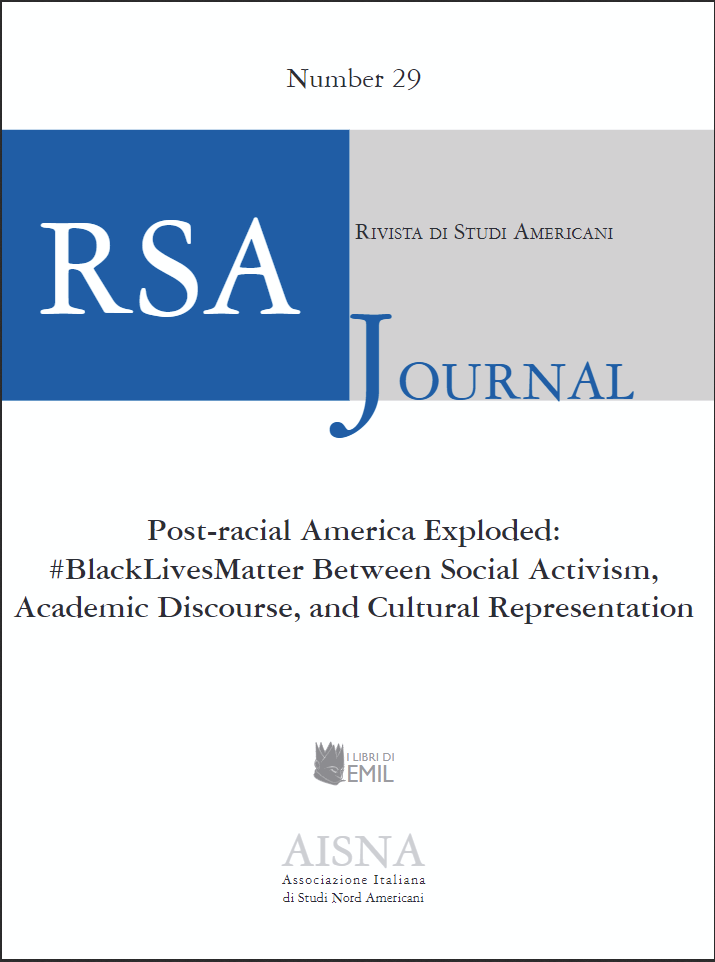Black Lives Matter in Wartime
DOI:
https://doi.org/10.13135/1592-4467/8533Keywords:
wartime, activism, police violence, BlackLivesMatterAbstract
The Black Lives Matter movement has been remarkably effective at mobilizing symbolic protest and policy proposals to render visible and interrupt the pervasive militarization of American society, exposing its intimate relationship to longer histories of structural racism and white supremacy. This essay distinguishes between militarist spectacles of police hardware and paramilitary SWAT raids and an uneven logic of militarization spanning the Reagan-era War on Drugs, domestic Pentagon arms transfers, and the wars in Iraq and Afghanistan. I read documentaries like Whose Streets?, Do Not Resist, and Stay Woke, activist memoirs and visual culture of the Ferguson protests through the ethical debate among activists, journalists and critical race theorists about the politics of representation in circulating videos of the police killings of Eric Garner, Alton Sterling or Orlando Castile. The Black Lives Matter movement has denaturalized
the spectacle of police violence against black bodies and re-embedded the stories of young black men killed by police and the activists who mourn and demonstrate into a counter-narrative of militarized occupation and protest. By doing so, I argue, the movement has intervened in the historical memory of America’s recent wars and challenged the embedding of military narratives and agendas within US institutions and civil society.
Downloads
Published
Issue
Section
License
RSAJournal applies a CC BY-NC-ND license to all its contributions. This license enables reusers to copy and distribute the material in any medium or format in unadapted form only, for noncommercial purposes only, and only so long as attribution is given to the creator. CC BY-NC-ND includes the following elements:
- BY: credit must be given to the creator.
- NC: Only noncommercial uses of the work are permitted.
- ND: No derivatives or adaptations of the work are permitted.
Authors who publish with this journal agree to the following terms:
- Authors retain the copyright and full publishing rights for their submissions to the journal.
- Authors grant the journal right of first publication with the work simultaneously licensed under a Creative Commons Attribution-NonCommercial-NoDerivatives 4.0 International License that allows others to share unedited work for non-commercial purposes with an acknowledgement of the work's authorship and initial publication in this journal.
- Authors are able to enter into separate, additional contractual arrangements for the non-exclusive distribution of the journal's published version of the work (e.g., post it to an institutional repository or publish it in a book), with an acknowledgement of its initial publication in this journal.




